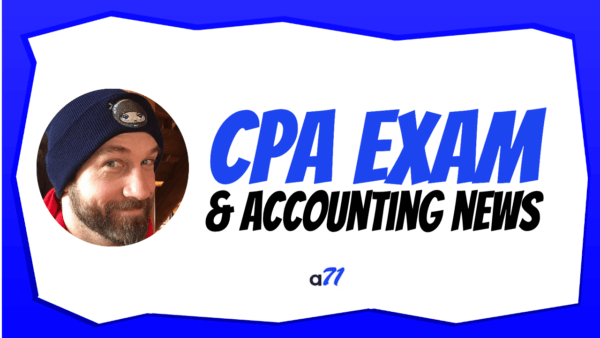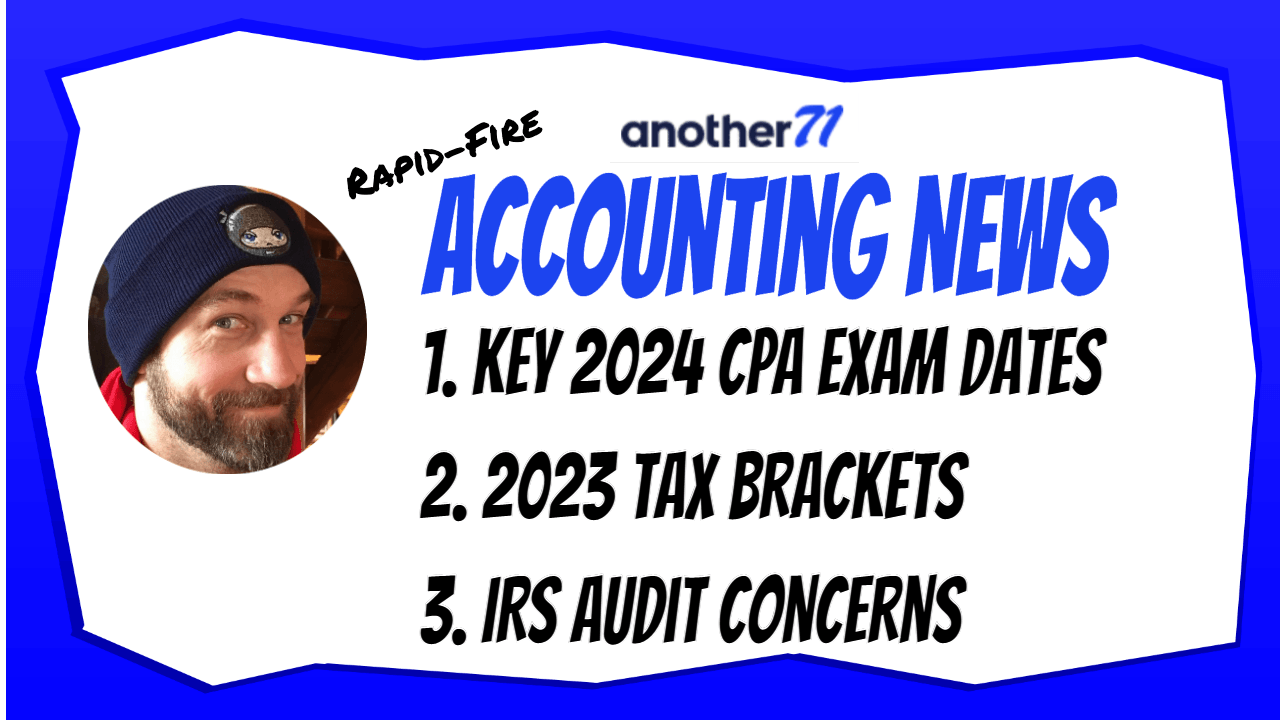
Rapid-Fire CPA Exam & Accounting News for Busy CPA Candidates
Disclosure: This page contains affiliate links. If you purchase after clicking one of our links, we may be compensated (at no additional cost to you).

Rapid-Fire CPA Exam & Accounting News for Busy CPA Candidates
A recent study from Brigham Young University has revealed that ChatGPT, an AI chatbot, failed to perform well in an accounting class, despite previously acing numerous academic challenges. The study involved 327 co-authors from 186 educational institutions across 14 countries contributing 25,181 classroom accounting exam questions for ChatGPT to answer, alongside 2,268 textbook test bank questions fed to the AI by undergrad BYU students. ChatGPT scored a disappointing 47.4% on the accounting questions, while human students averaged 76.7%. While ChatGPT outperformed students on 11.3% of questions, the AI performed worse than humans on tax, financial, and managerial assessments. This could potentially be due to ChatGPT's focus on language rather than math.
Oklahoma has eased its requirements for becoming a certified public accountant (CPA) in the state. Previously, candidates had to have several years of accounting experience and meet certain education requirements to become licensed. Under the new rules, individuals with a non-accounting bachelor's degree can become licensed if they have at least 30 semester hours of accounting courses and 24 semester hours of business courses. Additionally, those with a two-year accounting degree can become licensed if they have at least 30 semester hours of upper-division accounting courses. The changes aim to make the path to licensure more accessible and diverse.
The National Association of State Boards of Accountancy (NASBA) has made significant changes to its rule regarding retaking the Uniform CPA Exam. Under the previous rule, CPA candidates were required to wait until the next testing window to retake a section of the exam, even if they only failed one part. Under the new rule, candidates can retake a failed section during the same testing window, giving them more flexibility to retake and pass the exam. Additionally, NASBA has increased the number of times a candidate can take a section in a testing year from three to four. These changes are expected to positively impact the exam process for CPA candidates.
The Pennsylvania Institute of Certified Public Accountants (PICPA) has warned that accounting firms in the state are facing a talent shortage, with many struggling to find qualified professionals to fill open positions. According to a survey conducted by the organization, 81% of respondents reported difficulty recruiting new employees, with entry-level and mid-level positions being the most challenging. The pandemic and the resulting shift to remote work have made it more difficult for firms to attract new talent, as many job seekers prioritize remote work opportunities. PICPA is working to address the talent shortage by partnering with universities and colleges to promote accounting careers and offer student mentorship programs.
This article provides an overview of the US debt ceiling and its implications. The debt ceiling is a limit set by Congress on the amount of debt the US government can issue to finance its activities. The article discusses the history of the debt ceiling, including how it has been raised over time. It also outlines the potential consequences of hitting the debt ceiling, which include a government shutdown, a credit rating downgrade, and a potential default on the government's debt obligations. The article concludes by discussing the politics of the debt ceiling and the challenges associated with raising it, including partisan disagreements over government spending and taxation.
The National Association of State Boards of Accountancy (NASBA) has made a significant amendment to its Uniform Accountancy Act (UAA), which could impact CPA candidates across the US. The article discusses the implications of the amendment, which includes a change to the 120-credit-hour requirement for taking the CPA exam. Under the new rules, individuals can take the exam with a bachelor's degree or higher from an accredited institution, even if they do not meet the 120-credit-hour requirement. However, these individuals will still need to complete the full 150-credit-hour requirement to obtain a CPA license. The article also discusses the potential benefits and drawbacks of the rule change, as well as the reaction from the accounting community.
The next CPA Exam Score Release is on May 9, 2023 for April 1 – 23 Exams.
The article explores the question of whether mobility would go away if the 150-hour rule were eliminated. The 150-hour rule is a requirement that CPA candidates complete 150 semester hours of college education, including a certain number of accounting and business courses, in order to obtain a CPA license in many states. The article argues that the 150-hour rule helps to ensure that CPA candidates have a well-rounded education and are better prepared to serve their clients. However, some argue that the rule is unnecessary and restricts mobility for CPAs who may have obtained their education in a different state. The article ultimately concludes that eliminating the 150-hour rule would not necessarily lead to the end of mobility, but it would require a significant rethinking of the CPA licensure process.
UWorld Roger CPA Review is offering a scholarship program for students pursuing the CPA exam. The scholarship provides financial assistance to cover the cost of the CPA exam review course and materials. The company understands the financial burden that comes with pursuing a professional certification, and aims to help ease the financial strain for deserving candidates. Applicants are required to complete an essay and meet certain academic requirements. The scholarship program is open to all eligible candidates, regardless of their geographic location or educational background.
The course offered by Becker provides an update on the bank crisis and the Treasury's response to it. It discusses the factors that led to the crisis, the actions taken by the Treasury to stabilize the economy, and the regulations implemented to prevent future crises. The course is aimed at professionals in the banking and financial services industry who need to stay updated on the latest developments and regulations related to the bank crisis. The course is available for Continuing Professional Education (CPE) credits.






